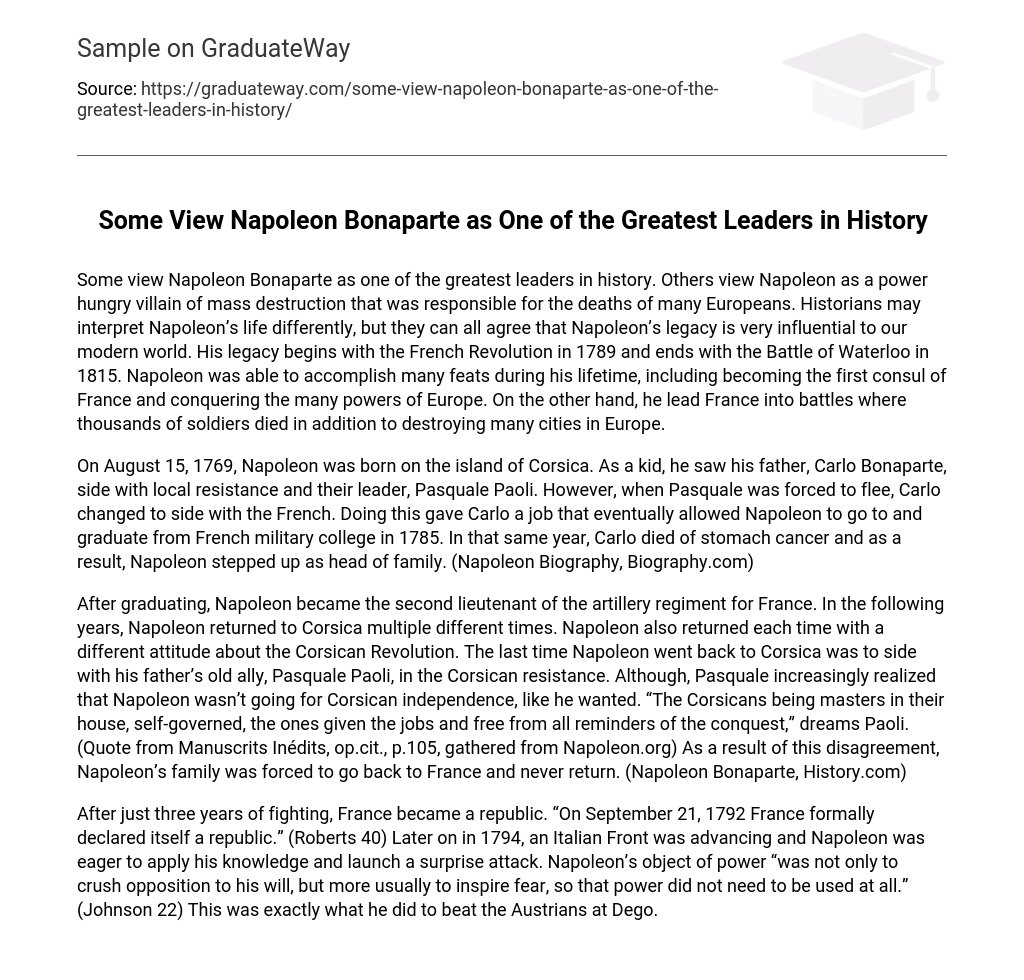Some view Napoleon Bonaparte as one of the greatest leaders in history. Others view Napoleon as a power hungry villain of mass destruction that was responsible for the deaths of many Europeans. Historians may interpret Napoleon’s life differently, but they can all agree that Napoleon’s legacy is very influential to our modern world. His legacy begins with the French Revolution in 1789 and ends with the Battle of Waterloo in 1815. Napoleon was able to accomplish many feats during his lifetime, including becoming the first consul of France and conquering the many powers of Europe. On the other hand, he lead France into battles where thousands of soldiers died in addition to destroying many cities in Europe.
On August 15, 1769, Napoleon was born on the island of Corsica. As a kid, he saw his father, Carlo Bonaparte, side with local resistance and their leader, Pasquale Paoli. However, when Pasquale was forced to flee, Carlo changed to side with the French. Doing this gave Carlo a job that eventually allowed Napoleon to go to and graduate from French military college in 1785. In that same year, Carlo died of stomach cancer and as a result, Napoleon stepped up as head of family. (Napoleon Biography, Biography.com)
After graduating, Napoleon became the second lieutenant of the artillery regiment for France. In the following years, Napoleon returned to Corsica multiple different times. Napoleon also returned each time with a different attitude about the Corsican Revolution. The last time Napoleon went back to Corsica was to side with his father’s old ally, Pasquale Paoli, in the Corsican resistance. Although, Pasquale increasingly realized that Napoleon wasn’t going for Corsican independence, like he wanted. “The Corsicans being masters in their house, self-governed, the ones given the jobs and free from all reminders of the conquest,” dreams Paoli. (Quote from Manuscrits Inédits, op.cit., p.105, gathered from Napoleon.org) As a result of this disagreement, Napoleon’s family was forced to go back to France and never return. (Napoleon Bonaparte, History.com)
After just three years of fighting, France became a republic. “On September 21, 1792 France formally declared itself a republic.” (Roberts 40) Later on in 1794, an Italian Front was advancing and Napoleon was eager to apply his knowledge and launch a surprise attack. Napoleon’s object of power “was not only to crush opposition to his will, but more usually to inspire fear, so that power did not need to be used at all.” (Johnson 22) This was exactly what he did to beat the Austrians at Dego.





